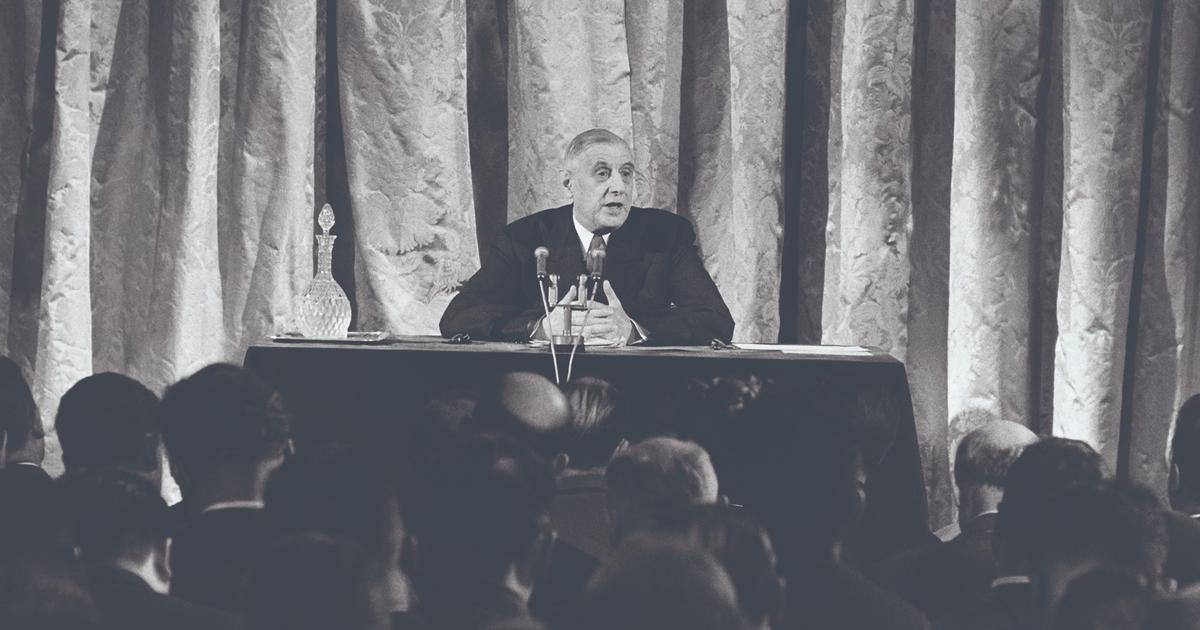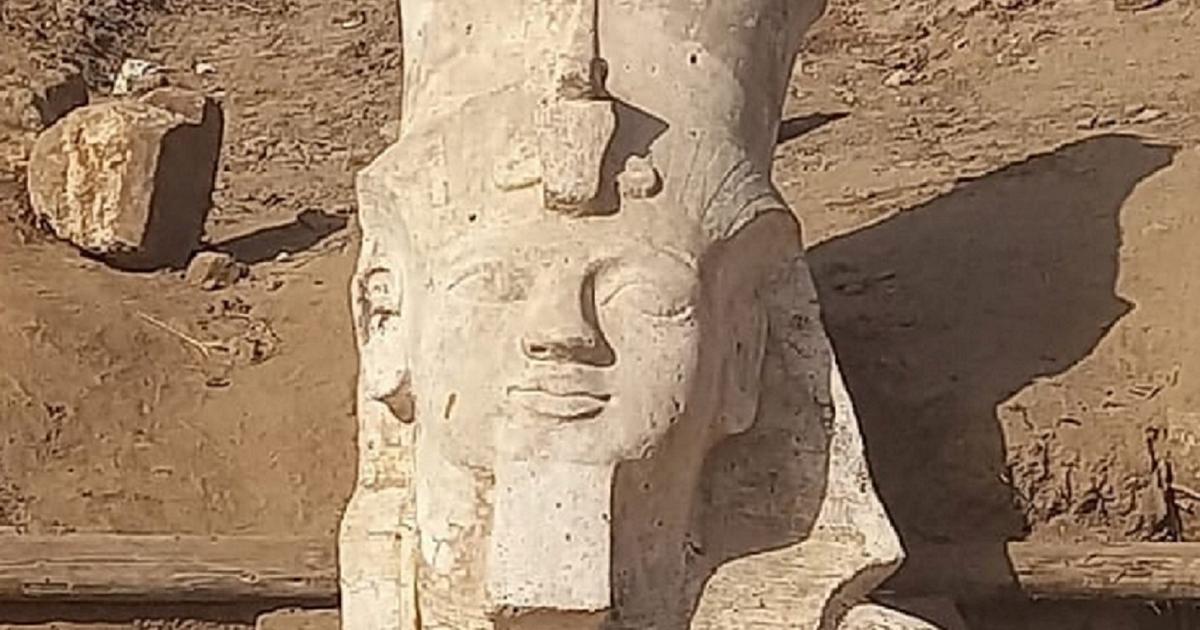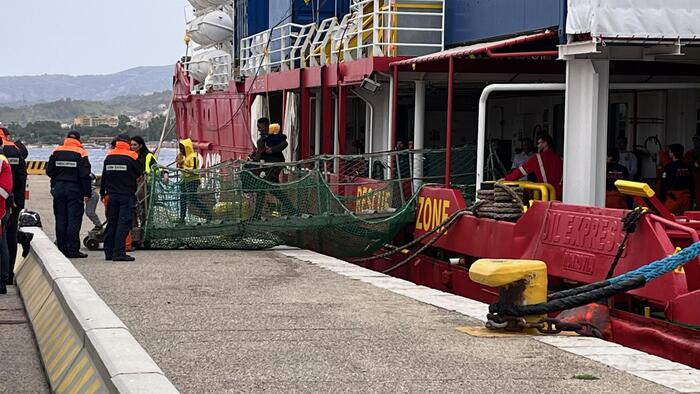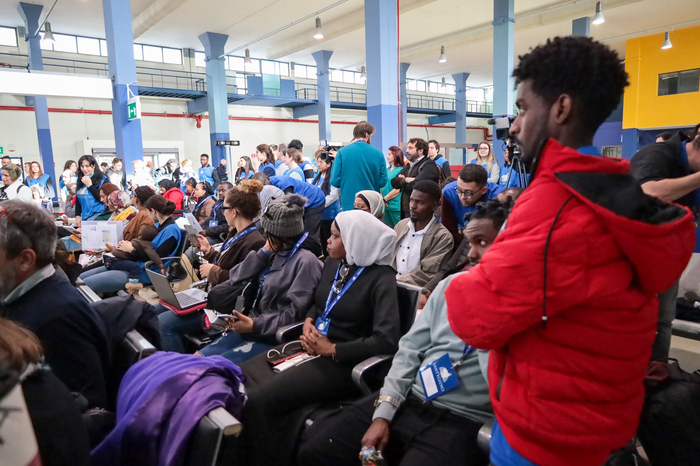Enlarge image
The "Grand Ethiopian Renaissance Dam" (still under construction in 2017): symbol of national pride
Photo:
Gioia Forster / picture alliance / Gioia Forster / dpa
Ethiopia has a reason to celebrate: its large dam, the largest in all of Africa, is almost complete.
On Monday, Water Minister Seleshi Bekele solemnly declared the second filling phase of the reservoir to be completed.
With the current water level, the dam should be able to put the first turbines into operation.
But further down the river in Egypt people are not happy about it.
For years there has been a dispute between the two countries on the Nile over the mega-project, and for a few weeks now the tones have become more irritable.
The Egyptian President Abdelfatah al-Sisi spoke last week of a "red line" in connection with the Ethiopian dam and Egypt's national security.
Why is Ethiopia building the dam?
With the megaproject, Ethiopia wants to produce electricity for its growing population.
Of the 110 million people, more than half currently have no access to electricity.
The "Grand Ethiopian Renaissance Dam" ("Gerd") is a symbol of national pride in the East African country that promises people development and prosperity.
Construction of the dam began in 2011 and is now 90 percent complete, according to Ethiopian information.
Ethiopia says that the construction of the »Gerd« is existential for the country and a matter of national sovereignty.
Contested water of the Nile
What are the Egyptian concerns?
The Nile is Egypt's lifeline.
It covers around 90 percent of Egypt's water consumption.
Cairo fears that the »Gerd« could endanger the water supply for around 100 million Egyptians.
The so-called Blue Nile in Ethiopia is the main tributary of the longest river in Africa.
It flows together with the White Nile in Sudan and from there on towards Egypt.
In the event of drought, the dam could lead to a reduction in the amount of water that reaches Egypt downstream.
That is why Cairo speaks of an existential threat.
Egypt's leadership is demanding guarantees from Ethiopia regarding the amount of water flowing into Egypt.
What is Sudan's stance?
On the one hand, Sudan could benefit from the dam - through cheap electricity supplies and better regulation of the Nile water, which has repeatedly led to floods in Sudan.
On the other hand, Khartoum increasingly shares Egyptian concerns about possible water shortages, especially since Addis Ababa surprisingly closed three out of four locks in the lower area of the facility last year in order to fill the reservoir more quickly.
Downstream this led to problems with the pumping systems for irrigation systems, and the local water supply in Sudan was interrupted.
What is the historical background of the conflict?
The dispute goes back to the colonial times.
In 1929, Great Britain signed an agreement with Egypt on the distribution of the Nile water on behalf of its colonies on the Nile Basin.
Cairo received, among other things, a right of veto over construction projects on the Nile.
Both Egypt and Sudan were entitled to a certain amount of water from the Nile.
Enlarge image
Endangered lifeline?
Canal fed by the Nile in the Egyptian oasis of Fayoum
Photo: Nariman El-Mofty / picture alliance / ASSOCIATED PRESS
After Sudan's independence, the two countries negotiated a new agreement in 1959, which slightly amended the British treaty - and again did not include Ethiopia.
Ethiopia and other upstream countries later tried to negotiate a new agreement that was more responsive to their interests.
But they failed because of resistance from Egypt and Sudan.
Ethiopia accuses Egypt and Sudan today of wanting to hold on to a "colonial legacy."
What have previous negotiations revealed?
Initially, Egypt fundamentally rejected the construction of the »Gerd«.
From 2012, however, Cairo signaled readiness to negotiate.
In 2015, Egypt, Sudan and Ethiopia signed a declaration of principles, according to which Ethiopia should, among other things, allow the constitution of an expert opinion on the social and environmental impact of the dam.
According to international law, that would be mandatory for such projects anyway.
Based on such an opinion, the states could agree on rules for the use of the dam.
However, shortly afterwards, Ethiopia again opposed the drafting of an expert opinion.
A new negotiation marathon seemed to bring the breakthrough in 2020 - but Ethiopia refused to sign an agreement at the last moment, citing the alleged endangerment of its national sovereignty.
more on the subject
Tensions with Ethiopia: Sudan calls for international mediation in the dispute over the Nile dam
Geopolitical dispute on the Nile: Ethiopia stagnates, Egypt foamsAn analysis by Christoph Titz
Geopolitical conflict with Egypt: Ethiopia fills controversial Nile dam for the first time
In the past, the World Bank, the United States, the Arab League and the African Union have tried to broker a solution to the conflict over the water of the Nile.
Sudan also played a mediating role, but Khartoum is increasingly approaching the Egyptian position.
Egypt and Sudan reached the UN Security Council this month, but without the hoped-for success: The body only called on all parties to continue to negotiate an agreement under the aegis of the African Union.
Addis Ababa also only accepts the African Union as an international mediator.
Will there be water shortages in Egypt and Sudan?
The Gerd Reservoir has been filled with water since 2020.
This process can no longer be "stopped", as Egypt demands, since the reservoir fills automatically when it rains due to the advanced construction of the dam.
However, by closing locks, Ethiopia can - and already has - speed up the process.
Due to the relatively high amounts of precipitation, there is currently no threat of a reduction in water volumes for the two countries downstream.
But Egypt expects water scarcity for its growing population as early as 2025.
That is why there is great nervousness in Cairo.
Is there a threat of a military escalation?
Egypt has indicated several times that "all options" are open.
There is already a simmering border conflict between Ethiopia and Sudan, and Khartoum is increasingly taking sides with Egypt in the dispute over the dam.
In April, the two countries held joint military exercises.
However, Cairo might think twice about the military option.
With the current military capacities, Egypt could probably only delay the dam project at this point, but not destroy it - and at the same time a military escalation would risk an unpredictable destabilization of the region.


/cloudfront-eu-central-1.images.arcpublishing.com/prisa/4FLE5PNY3VBLRCDNGWKQRJSUN4.jpg)
/cloudfront-eu-central-1.images.arcpublishing.com/prisa/NHY25SDHJVC45K6D6SVJC32DCQ.jpg)


/cloudfront-eu-central-1.images.arcpublishing.com/prisa/Q3R3DI62AJHR7AGTRNQPF2AHCI.jpg)

/cloudfront-eu-central-1.images.arcpublishing.com/prisa/NFJ4WIJE5VH37NB3W7TPRSICEI.jpg)






